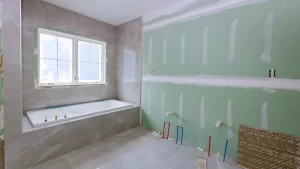“What is a fixed-price tender?”
Having your house renovated is one of the most exciting yet stressful things you will ever do. It’s easy to get lost in all the jargon and terminology thrown around when looking for contractors.
You’ve probably heard about fixed-price tenders, but what does it mean? Read on to find out!
What Does Fixed-Price Tender Mean in Construction?
Fixed-price tenders are a great way to ensure your budget stays intact while still getting a fantastic house built by builders who their past clients have vetted.
This contract guarantees that your contractor won’t be asking for more money halfway through construction. They will stick to the agreed-upon cost until it’s finished!
Fixed-price tender is the most common and popular option. It is generally the best option for a homeowner as the contractor provides a fixed price to estimate the material cost, labour cost, and other additional costs based on a contract.
Advantages of a Fixed Price Tender
The most obvious benefit of getting into a fixed price tender contract is that you will have a clear expectation on how much you will have to spend. Other than this benefit, the following are its other advantages:
Budgeting is easier.
Because you have a clear expectation of the price, you will know how much money you will need for the project. It also goes the same with the builders as they will know how they should budget the given amount for the construction.
No need for thorough supervision of the cost.
You don’t have to worry about paying extra because the only thing that matters is the agreed cost.
The price quotation given by the contractor is their final price which means there will be no changes to it. It cuts down the worries of exceeding your budget.
(Also see: How to Compare Builders’ Quotes)
Therefore, you don’t have to micromanage every material or equipment added or incorporated to complete the project.
Disadvantages of a Fixed Price Tender
There are limitations on what you can add or do to the project.
Fixed price tenders can be limiting as they restrict you to some aspects of the project. It includes the design, materials, and other custom requests that could restrict what your outcome will entail.
Beware
Although a fixed-price tender contract can be an enticing deal to sign up for with your builders, you need to make sure that the agreement is clear. There are a few contracts that may appear as “fixed price tender” but don’t provide the same thing.
For example, if a contract states a limiting amount of materials, such as “up to 100 grams of,” instead of an exact amount. It can provide your builders with the opportunity to charge you more if they use less than 100 grams of a particular material.
To prevent misunderstanding, the details on what’s included in the contract should be precise.
Conclusion
We understand that property construction is an exciting process, but it can also be stressful. A fixed-price tender helps you keep your budget intact while still getting the outcome that you and your family deserve.
But if you want to get into a fixed-price tender contract, make sure to transact with reliable and trustworthy builders. They should provide you with clear details on the amount you need to pay for construction services.
Communication is also an important consideration. Ensure that there’s open communication between you and the project manager to clear out any misunderstanding at the beginning rather than halfway through construction.
MKJ Projects will provide you a project manager who you can communicate with in the whole process. If you want to hire builders who value transparency and communication, contact MKJ now!








